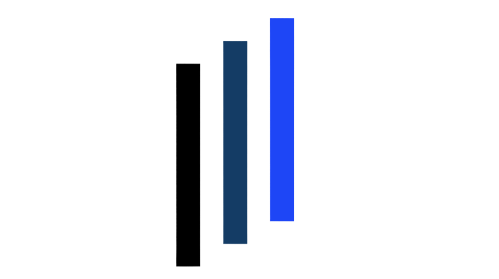How to Save a Real Estate Firm Over $2,800 / year
Overview
This modeled example demonstrates how a typical 5-person real estate agency operating from a small office could reduce costs, emissions, and improve visibility with targeted sustainability and digitalization strategies, while building enduring stakeholder value.
The figures are based on public benchmarks and industry-standard case studies.
The Situation
Location: Portland, Oregon
Business type: Boutique real estate agency
Staff: 5 full-time employees, 2 part time
Office size: ~1,200 sq ft
Annual energy cost: ~$3,500
Print & marketing materials: ~$300/month
Website: Informational only, minimal traffic
Digital Presence: Limited to infrequent (2-4x per year) LinkedIn updates
Challenges Identified
Heavy reliance on printed materials
Inefficient HVAC and lighting systems
No recycling program
No automated booking/calendar automation
Low website traffic and digital presence
No actionable data from web visitors or content performance
The Solution
Digitization
Some of the most powerful tweaks a small business can make come in the form of its online presence. As the first (and last, if done wrong) touchpoint for a (potential) client is usually online, they will make snap decisions about the quality of your work and your trustworthiness. With several small tweaks, a business can build trust and attract clients from the jump. Some of the lowest lift and highest impact actions for a business of this kind are as follows
Search Engine Optimization (SEO): Added meta descriptions, improved site speed, published blog content meeting the target demographics search, ie “eco-friendly real estate in Portland”, yielding a 15–30% increase in organic traffic in 3–6 months
LinkedIn Strategy: Weekly posts + client stories, optimized profile, improved visibility & lead quality, while CEO built a personal brand & voice
Google Analytics: Installed tracking, reviewed bounce rates, and adjusted landing page. Provided insight into user behavior, boosting retention and reducing the cost of customer acquisition by over 30%.
Google Business Profile: Claimed and optimized profile, added “woman-led” badge, posts, photos. More local traffic and calls, increased Google visibility, and driving an increase in first time customers of up to 15% YoY.
Email Capture & Newsletter: Added blog with opt-in for “Green Home Tips” newsletter. Created recurring engagement and lead nurturing channel, and driving repeat business up by over 10%.
Sustainable Operations
Sustainably doing business was once a nice-to-have. Now, 5 years out from most corporations net-zero targets, the pace of chance is accelerating. Large companies have been la vanguardia, its now small and medium sized firms turn. The good news is, these firms can find outsized efficiencies and cost savings by implementing a few smart changes. Here are some of the most impactful for our theoretical real estate agency:
HVAC efficiency: $300+ in cost savings, and heating/cooling emissions reduction by ~10% via programmable thermostats & improved weatherstripping,
Printing & marketing: $2,000+ and 50+ kg CO₂ annually by eliminating the use of 4,000+ sheets of paper, shifting 60% of materials to digital, and the rest to recycled paper.
Lighting: $250+ in energy cost reduction and lowered net energy usage by 20–25% by switching to LEDs bulbs throughout the office.
Recycling & waste diversion: Diverted ~300 lbs of waste annually, and started basic paper, ink, and cardboard recycling program - all at no additional cost.
The Results
Total Estimated Financial Savings: $2,800 + per year
Carbon Reduction Estimate: 0.5–1 metric tons CO₂e/year
Digital Growth Benefits:
~25% increase in monthly website traffic
Higher conversion from improved call-to-action (booking, contact form) (resulting in ~3 additional new client engagements per month)
More qualified inquiries through LinkedIn and Google, more business at no cost.
Broader Impact
This agency would of course see improved profitability to the tune of a double digit % increase in the short-medium term, but the real benefit lies beyond, in reducing its environmental footprint, improving its digital discoverability, and boosting client trust. These improvements generate stakeholder value, which is the one true metric of a business’s capacity to stay in business, aka its sustainability. More tangibly, this company will see an uptick in qualified leads, client satisfaction, quantity of referral business and positive word of mouth, while positioning itself as a modern, responsible brand in any market, and leaving competition in the dust.
Sound like something that could benefit your business?
